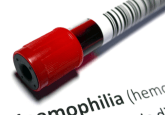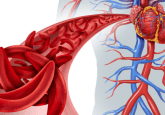NICE recommends new hemophilia B treatment in UK through novel managed access agreement

Etranacogene dezaparvovec (HEMGENIX®) is the first and currently only gene therapy approved for hemophilia B in the UK and is made available under the Innovative Medicines Fund.
As the National Institute for Health and Care Excellence (NICE) and the NHS grapple with the high upfront costs and uncertainty surrounding the long-term outcomes of novel cell and gene therapies in the UK, novel payment methods are being explored. These therapies, often providing one-time treatments, incur significant expenses that challenge traditional payment frameworks, necessitating innovative approaches to ensure patient access while maintaining financial sustainability.
Having been granted a conditional marketing authorization in the UK in 2023, NICE initially recommended against the use of CSL Behring’s hemophilia B treatment etranacogene dezaparvovec (HEMGENIX®), citing concerns about long-term effectiveness as well as cost-effectiveness. Now in a landmark decision, this opinion has been overturned and the gene therapy has been recommended for NHS use by NICE under a managed access agreement, whilst further data on its effectiveness is collected. Notably, etranacogene dezaparvovec is the first product to receive a recommendation for managed access under the Innovative Medicines Fund (IMF), established to ensure patient access to pioneering non-cancer medicines, such as cell and gene therapies, at a sustainable and responsible cost. The treatment will be made immediately available for patients via the IMF through eight specialist centers across England.
Hemophilia B is a rare genetic bleeding disorder caused by mutation in the genetic code for coagulant Factor IX (FIX), a critical protein involved in blood clotting. Currently affecting more than 2000 people live with hemophilia B in the UK, around 250 people are expected to be eligible to receive the treatment. Treatment strategies include infusions with FIX repeated regularly, usually once or twice a week; etranacogene dezaparvovec is administered as a one-time infusion. One of the world’s most expensive drugs, with a list price of $3.5 million, the cost-effectiveness of the single infusion needs to be pitted against costs of ongoing treatment and care.
As the CSL Behring press release notes, etranacogene dezaparvovec is also, “the first advanced therapy medicinal product (ATMP) to use an innovative outcomes-based payment model as described under the Voluntary Scheme for Branded Medicines Pricing, Access and Growth (VPAG).” VPAG is a five-year voluntary agreement between the Department of Health and Social Care, NHS England, and the Association of the British Pharmaceutical Industry aiming to promote better patient outcomes, support UK economic growth, and contribute to a financially sustainable NHS through a differentiated payment mechanism for newer and older branded medicines.
“The innovative outcome-based agreement reflects CSL Behring’s confidence in the efficacy and durability of this therapy as well as the value it adds to the health system. This agreement provides the NHS with the necessary assurance of value and financial protection to enable immediate funding to provide treatment for eligible patients.”
The positive reimbursement decision by NICE follows several similar decisions across Europe. Earlier this week (June 20, 2024) the Danish Medicines Council and CSL Behring agreed to make the drug available via an outcomes-based agreement. In Austria, access has been made available via a ‘pioneering funding solution’, whilst in France, patients can receive the treatment under the new Direct Access process.
Reactions
The milestone by NICE has been met with widespread approval from the medical community and patient advocacy groups.
Professor Sir Stephen Powis, NHS National Medical Director: “This promising drug is the latest in a series of pioneering gene therapies secured for NHS patients at an affordable price and becomes the first drug to be made available in our IMF to provide early access for patients while further data is collected on its long-term benefits.”
Paul Catchpole, Director of Value and Access policy, ABPI: “It marks the first time a medicine has been granted managed access through the IMF since it was launched in 2022. It is also encouraging to see an innovative payment model has been agreed, with payments potentially linked to how well the treatment performs over time. Looking at the new medicines pipeline, these payment models may become more important for some medicines in the years ahead.”
Clive Smith, Chair of the Haemophilia Society: “The availability of gene therapy through the NHS for people living with severe hemophilia B marks a major milestone for our community. This is another important step towards our goal that everyone living with an inherited bleeding disorder has access to treatment which allows them to lead a full and independent life.”
Professor Amit Nathwani, Professor of Haemophilia, University College London: “The approval of access to etranacogene dezaparvovec in England marks a significant landmark for individuals with hemophilia B, offering a potentially transformative, long-term treatment option capable of improving the daily lives of eligible patients but also alleviating pressure on the NHS and dedicated healthcare professionals managing hemophilia B.”
Want regular updates on the latest real-world evidence news straight to your inbox? Become a member on The Evidence Base® today>>>





